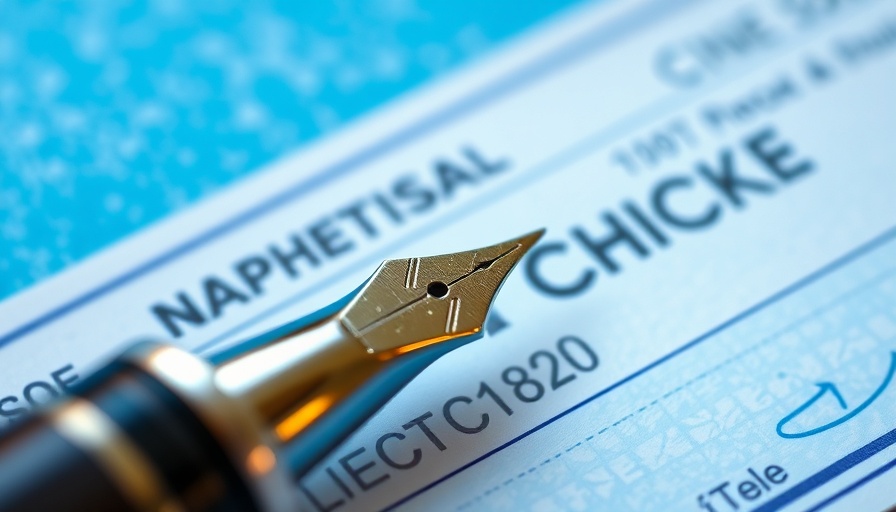
Understanding Cashier’s Checks: A Secure Payment Option
For small business owners, dealing with bounced checks can lead to frustrating disruptions in operations. Enter the cashier’s check: a secure payment method issued by banks that can effectively protect against the risks of personal or business checks bouncing. When it is necessary to make large payments for things like equipment, vendor services, or real estate, a cashier's check stands out as a reliable choice.
Why Use Cashier’s Checks for Large Transactions?
Cashier’s checks are ideal for significant transactions because they are backed by the bank's funds, ensuring that the payee will receive the amount specified on the check without the risk of insufficient funds. They typically include built-in security features—like watermarks and microprinting—that help prevent fraud. Using a cashier's check provides confidence not only to the recipient but also allows the payer to know their funds are secure.
How to Obtain a Cashier’s Check
Getting a cashier’s check can be quite straightforward. Visit your bank or credit union with the necessary funds, government-issued ID, and details about the recipient and amount. The bank withdraws the amount from your account immediately before issuing the check, which is signed by a bank official. Be aware that most banks charge a small fee for this service, typically ranging from $10 to $15, though it may be waived for account holders.
When Should Small Businesses Use Cashier’s Checks?
Small businesses should consider using cashier’s checks when making crucial payments where reliability is necessary. They are particularly useful for real estate transactions, large equipment purchases, and when entering new contracts with vendors that require proof of funds. Cashier’s checks exemplify professionalism and can instill trust in new business relationships.
Comparing Cashier’s Checks to Other Payment Methods
Alternatives like personal checks, wire transfers, and money orders exist but come with varying degrees of security and reliability. Personal checks, for example, are more prone to bouncing if funds are insufficient, while money orders typically have lower transaction limits. Wire transfers may be fast, but they often cannot be reversed once sent. In contrast, cashier’s checks offer the assurance of immediate funds, making them a preferred option for high-stakes scenarios.
In conclusion, understanding how cashier’s checks work is vital for small business owners, especially when engaging in high-value transactions. This banking tool provides a secure way to manage finances while presenting professionalism to vendors or business partners. If you haven’t done so already, consider forming a relationship with your bank to discover how a cashier’s check can simplify your business transactions.
 Add Row
Add Row  Add
Add 




Write A Comment